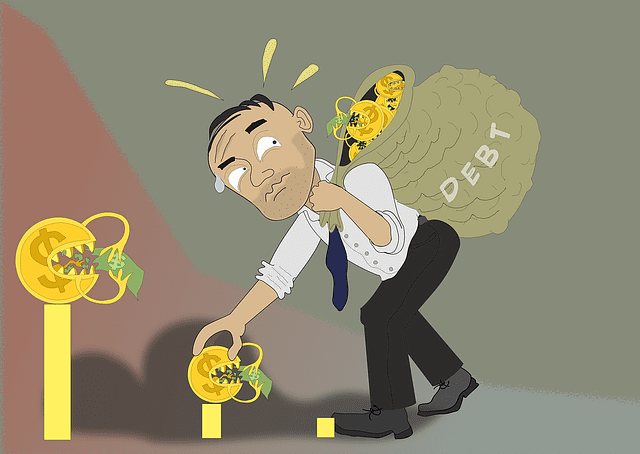Dealing with debt can be stressful, but there are many ways to manage the situation. First, contact your lender and ask for a hardship program. Your lender may be willing to work with you, but you must be proactive. A nonprofit credit counselor can help you navigate the process and avoid scams.

Find a reputable nonprofit credit counselor.
Look for programs that allow you to defer/adjust payments. This is a red flag for scammers.
When looking for a nonprofit credit counseling agency, look for one with a good reputation. The Better Business Bureau and Trustpilot are great resources for examining companies. In addition, look for a nonprofit credit counseling agency, such as Priority Plus Financial, that provides various services to help you get out of debt.
Another great resource is the National Foundation for Credit Counseling, which provides free credit counseling. NFCC counselors can help you navigate emergency credit card payments and discuss ways to avoid foreclosure. Keep in mind, however, that these services are not long-term solutions.
Credit counseling services should offer free information and not ask for personal information. They should also provide debt management classes, budget counseling, and savings classes, among other benefits. Some nonprofit credit counselors also provide information for consumers and offer follow-up sessions.
Avoid borrowing money through credit card use.
Another way to deal with credit card debt is to pay off all but the most urgent bills. Many people were already dealing with debt before the coronavirus pandemic struck. However, you should stop using your credit cards in case of a lockdown. In addition, you can prioritize your spending and avoid using your credit cards for regular expenses.
During an emergency, many credit card companies offer emergency forbearance, which lets you reduce or skip payments. However, you must make up the missed payments after the forbearance period ends. Also, the late fees can impact your credit score. Contact your credit card provider to avoid being charged a high-interest rate and explain your financial situation. Many companies will work with you if you can show you lost income, but be prepared to explain why you need the help.
Many consumers found it difficult to make monthly payments during COVID-19. As a result, many credit card companies have introduced financial relief policies. These can include reduced annual interest rates or fee waivers. You can apply for financial relief by calling your credit card company or filling out an online form.
Avoid scams
Scammers often take advantage of a crisis to take advantage of people’s financial situation. Be cautious about scammers posing as charities, medical authorities, or debt counselors. Some may even pretend to be affiliated with government agencies. It’s essential to check with your state’s attorney general’s office and the CFPB to avoid scammers.
Be aware that the coronavirus can keep you from working and may even make it impossible to pay your bills. However, many resources and programs help you deal with debt during the COVID-19 pandemic. Many financial institutions and credit card issuers are rolling out assistance programs for affected individuals.
As the COVID-19 pandemic continues to plague the US, scammers attempt to exploit consumers’ fears about the virus. One way they do this is through robocalls, which focus on health-related concerns.
Avoid borrowing money through suspension of debt service
As the novel coronavirus spread worldwide this spring, governments took on huge new healthcare and social costs, which wiped out their revenue. At the same time, many developing nations were saddled with large amounts of debt. In addition, these countries have borrowed heavily from countries such as the People’s Republic of China over the last decade.
As a result, the COVID-19 pandemic is setting the stage for a protracted debt crisis in many developing countries. Such risks were already high before the pandemic and are now starting to materialize. As a result, the debt crisis could hamstring developing countries’ response to the pandemic, prevent them from investing in the UN SDGs, and potentially set back sustainable development. Fortunately, the global community is taking action. It has agreed to suspend debt service for 76 low-income countries that qualify partially. These countries include the 25 poorest countries.